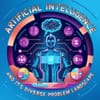Artificial intelligence (AI) encompasses a broad range of problems, each with its unique characteristics. Understanding these differences is crucial for developing effective AI solutions.
AI problems can be categorized based on their complexity, uncertainty, and requirements. Some AI problems involve well-defined rules and deterministic outcomes, while others are ambiguous, uncertain, or dynamic.
The characteristics of AI problems also vary in terms of data requirements, computational complexity, and human involvement. Some AI problems can be solved using large datasets and machine learning algorithms, while others require domain expertise, reasoning, and human judgment.
By recognizing the diverse nature of AI problems, researchers and practitioners can develop tailored solutions that address specific challenges and leverage the strengths of different AI approaches. This nuanced understanding is essential for advancing AI research and applications.


